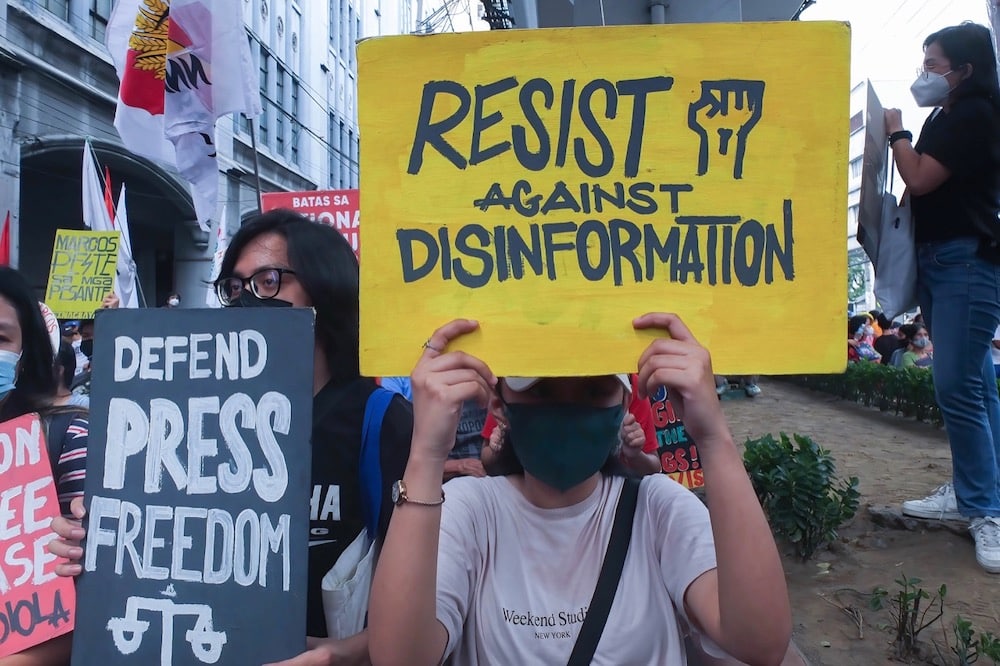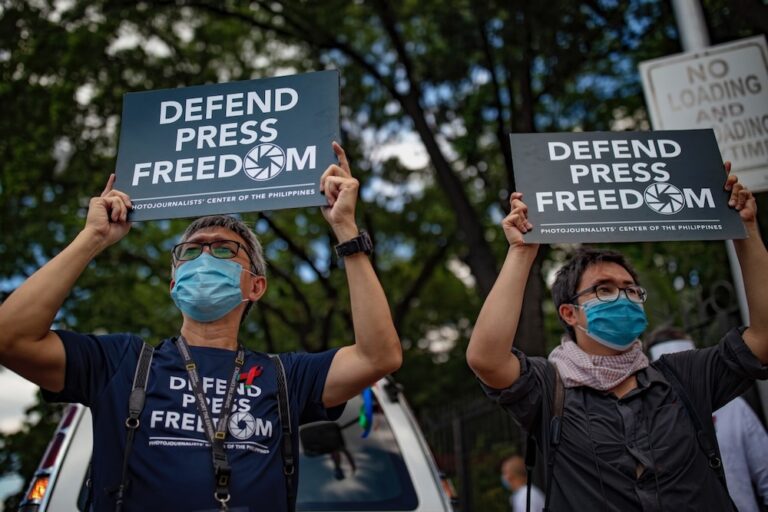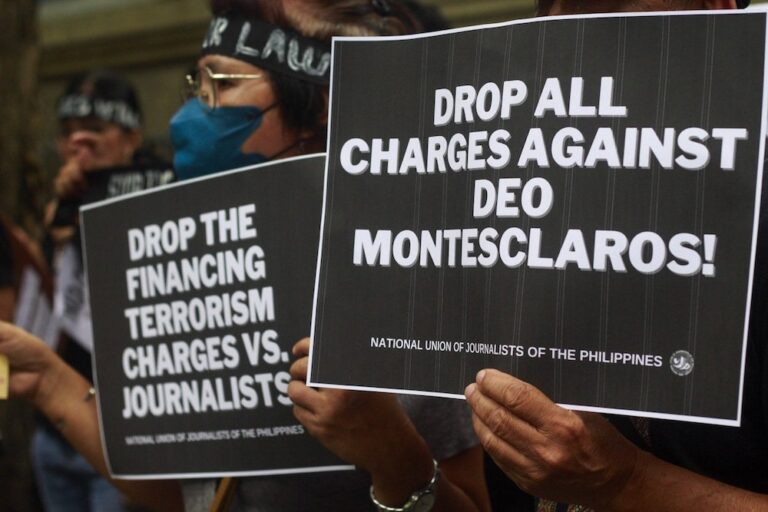Media groups reported that the new Freedom of Information policy issued by the Philippine government contains numerous exemptions and restrictions.
This statement was originally published on cmfr-phil.org on 14 April 2023.
THE MEMORANDUM Circular (MC) No. 15 issued by Executive Secretary Lucas Bersamin issued No. 15 left more official goings and public records blurry by the Palace as it updated former President Rodrigo Duterte’s Freedom of Information (FOI) Executive Order (EO) No. 2 last March 17.
CMFR recalls how the media cheered Duterte’s order, citing sources who pointed out the liberal impulse it reflected. Only a few picked up the news on the Marcos FOI update of Duterte’s EO No. 2 on FOI. But even then, only Inquirer reviewed how the policy retained existing prohibitions on citizens’ access on government information
Four news organizations identified different categories of exemptions. Philippine Daily Inquirer in its banner story on March 24 noted how the Marcos’ policy had more exemptions, having added records and information regarding any investigation by the Presidential Anti-Corruption Commission (PACC) and names of victims of gender-based sexual harassment in public. CNN Philippines on March 22 noted that records of suspected terrorists will be inaccessible. Meanwhile, ABS-CBN Online on March 23 reported how “birth records, school records, or medical or personal information” were added as exceptions. A column by Yen Makabenta in the Manila Times compared the FOI in the Philippines and in the US.
FOI’s history of failure in Congress
The first Freedom of Information (FOI) bill dates back to the 1990s and remains in legislative limbo. Duterte’s EO mandating access to information held by agencies in the executive branch was hailed by government officials and by FOI advocates such as the Right to Know Right Now (R2KRN) Coalition and other media organizations. When it was signed soon after Rodrigo Duterte took office on July 23, 2016, media reports cheered it as a landmark measure. Reports then did not note that President Fidel V. Ramos had issued an FOI order as well with the same limited application to executive branch agencies.
FOI EO laid down a policy of full public disclosure, and transparency in public service to promote accountability and set guidelines for requesting and releasing information. From 166 exceptions, the list was narrowed to nine exceptions which are:
- Information covered by executive privilege;
- Privileged information relating to national security, defense, or international relations;
- Information concerning law enforcement and protection of public and personal safety;
- Information deemed confidential for the protection of the privacy and certain individuals such as minors, victims of crimes or the accused;
- Information, documents, or records known by reason of official capacity and are deemed as confidential, including those submitted or disclosed by entities to government agencies, tribunals and boards or officers, in relation to the performance of their functions or to inquires or investigation conducted by them in the exercise of their administrative, regulatory or quasi-judicial powers;
- Prejudicial, premature disclosure;
- Records of proceedings or information from proceedings which pursuant to law or relevant rules and regulations are treated as confidential or privileged;
- Matters considered confidential under banking and finance laws and their amendatory laws.
- Other exceptions to the right to information under laws, jurisprudence, and rules and regulations.
Freedom of Exceptions
CMFR then noted that the ninth item served as a “catch-all” of all other limitations, which reduced the state of access to square one.
Some news organizations also reported how FOI resulted in “unintended consequences” that have not always led to transparency; often requests were denied and information was kept and took longer to be released.
Worsened by the pandemic, in 2020, the Philippine Center for Investigative Journalism (PCIJ) noted how only 1 in 10 of COVID-19 requests by journalists has been granted. Further, under EO 2, most government agencies except for the Office of the President (OP) were enrolled in the electronic FOI (eFOI) portal.
PCIJ in May 2022 also showed how one in every four requests were denied or remained pending for an indefinite time since the start of Duterte’s term. The media outlet added that the “numbers do not tell the whole story.” The Executive Branch approves 40% of FOI requests but some of the information, despite marked as “successful,” were not released or is irrelevant to the data requested.
Inquirer in October 2022 requested information on Marcos’ trips since he took office. However, the media organization was denied “on the ground that the documents/lists requested are not among the records in the possession of the OP.” In the Duterte administration, the Inquirer was able to obtain such information.
Marcos’ FOI order got tangled in its implementation because he issued earlier an EO No. 2 on June 30, which merged a number of offices under the Office of the President (OP). But after vlogger Trixie Cruz-Angeles exited the Palace, the communications arm was renamed the Presidential Communications Office (PCO). According to EO No. 16 issued on February 13, the FOI Program Management Office, along with other offices, returned to the PCO. Designed for greater efficiency, the reorganization delayed the implementation of the FOI.
It is difficult to say whether the FOI will flourish and improve public access to information under Marcos. Duterte’s model did little to promote transparency in government.
Some journalists have questioned the credibility of the Marcos administration to undertake a campaign against “fake news.” The same doubts can be raised about the sincerity of opening up government information to the media and the public.



